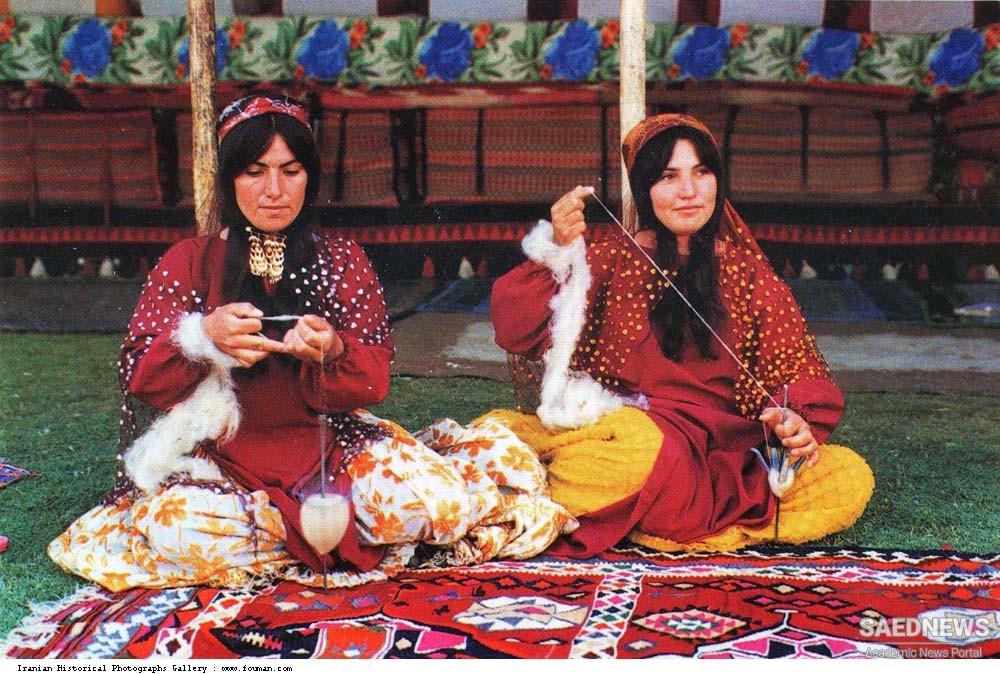The organization of the day and the week differ from what a Westerner is used to. The day begins at the moment of true dawn—about an hour and twenty minutes before sunrise—with the call to morning prayer. This timing variation through the seasons influences Iranians’ everyday life. Iranians often feel that in winter, when the noon call to prayer is made at about 11:55 and the evening one can be as early as 5:00 P.M., that the days are short and that they can’t get many tasks done. In the summer, when days are long, there are more hours in the day. The rest of the day is punctuated by another two calls to prayer, at about 12:00 noon in the autumn and winter, and about 1:00 P.M. in the spring and summer for the noon/afternoon prayer, after which lunch is usually eaten. The most marked difference happens with the variation of the evening prayer, which can be as early as 5:00 P.M. in the winter and as late as 8:45 P.M. in the summer. Traditionally, meals are served after the evening prayers, so in the summer dinnertime may be as late as 9:30. Office and school hours, however, don’t vary with seasons. As in other Islamic countries, the day of rest in Iran is Friday, with schools and some offices working a half day on Thursday. The first working day of the week is therefore Saturday, so many embassies have their weekend on Fridays and Saturdays. Traditionally, the day ends at sunset, so “Thursday night” can also be expressed as “the night of Friday.” Consequently, Iranians often celebrate birthdays and anniversaries on the eve of the day itself. (Source: Among Iranians).


 People of Iran: United Minorities Making a Blissful Majority
People of Iran: United Minorities Making a Blissful Majority














































